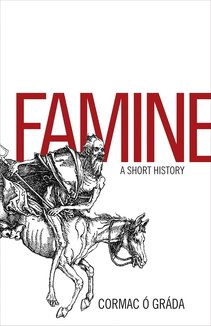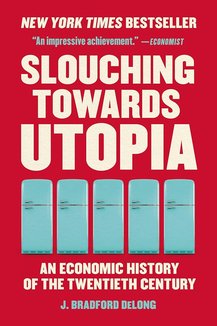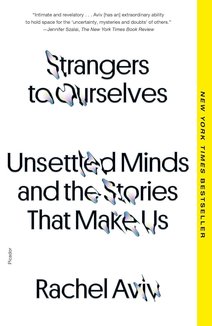Recommended Books

Famine: A Short History
Author:
Cormac Ó Gráda
ISBN 13:
978-0691122373
Famine remains one of the worst calamities that can befall a society. Mass starvation--whether it is inflicted by drought or engineered by misguided or genocidal economic policies--devastates families, weakens the social fabric, and undermines political stability. Cormac Ó Gráda, the acclaimed author who chronicled the tragic Irish famine in books like Black '47 and Beyond , here traces the complete history of famine from the earliest records to today. Combining powerful storytelling with the latest evidence from economics and history, Ó Gráda explores the causes and profound consequences of famine over the past five millennia, from ancient Egypt to the killing fields of 1970s Cambodia, from the Great Famine of fourteenth-century Europe to the famine in Niger in 2005. He enriches our understanding of the most crucial and far-reaching aspects of famine, including the roles that population pressure, public policy, and human agency play in causing famine; how food markets can mitigate famine or make it worse; famine's long-term demographic consequences; and the successes and failures of globalized disaster relief. Ó Gráda demonstrates the central role famine has played in the economic and political histories of places as different as Ukraine under Stalin, 1940s Bengal, and Mao's China. And he examines the prospects of a world free of famine. This is the most comprehensive history of famine available, and is required reading for anyone concerned with issues of economic development and world poverty.

Slouching Towards Utopia: An Economic History of the Twentieth Century
Author:
J. Bradford DeLong
ISBN 13:
978-1541604247
An instant New York Times and Wall Street Journal bestseller from one of the world’s leading economists: this "magisterial history" offers a grand narrative of the century that made us richer than ever, but left us unsatisfied (Paul Krugman) Before 1870, humanity lived in dire poverty, with a slow crawl of invention offset by a growing population. Then came a great shift: invention sprinted forward, doubling our technological capabilities each generation and utterly transforming the economy again and again. Our ancestors would have presumed we would have used such powers to build utopia. But it was not so. When 1870–2010 ended, the world instead saw global warming; economic depression, uncertainty, and inequality; and broad rejection of the status quo. Economist Brad DeLong’s Slouching Towards Utopia tells the story of how this unprecedented explosion of material wealth occurred, how it transformed the globe, and why it failed to deliver us to utopia. Of remarkable breadth and ambition, it reveals the last century to have been less a march of progress than a slouch in the right direction. Named a Best Book of 2022 by Financial Times * Economist * Fast Company

Strangers to Ourselves
Author:
Rachel Aviv
ISBN 13:
978-1250872913
New York Times bestseller One of the top ten books of the year at The New York Times Book Review , The Wall Street Journal , Vulture/ New York magazine A best book of the year at Los Angeles Times , Time , NPR, The Washington Post , Bookforum , The New Yorker , Vogue , Kirkus The acclaimed, award-winning New Yorker writer Rachel Aviv offers a groundbreaking exploration of mental illness and the mind, and illuminates the startling connections between diagnosis and identity. Strangers to Ourselves poses fundamental questions about how we understand ourselves in periods of crisis and distress. Drawing on deep, original reporting as well as unpublished journals and memoirs, Rachel Aviv writes about people who have come up against the limits of psychiatric explanations for who they are. She follows an Indian woman celebrated as a saint who lives in healing temples in Kerala; an incarcerated mother vying for her children’s forgiveness after recovering from psychosis; a man who devotes his life to seeking revenge upon his psychoanalysts; and an affluent young woman who, after a decade of defining herself through her diagnosis, decides to go off her meds because she doesn’t know who she is without them. Animated by a profound sense of empathy, Aviv’s gripping exploration is refracted through her own account of living in a hospital ward at the age of six and meeting a fellow patient with whom her life runs parallel―until it no longer does. Aviv asks how the stories we tell about mental disorders shape their course in our lives―and our identities, too. Challenging the way we understand and talk about illness, her account is a testament to the porousness and resilience of the mind.